THE
DREAM
OF
PERPETUAL
MOTION
THE
DREAM
OF
PERPETUAL
MOTION
Dexter Palmer
St. Martins Press  New York
New York
This is a work of fiction. All of the characters, organizations, and events portrayed in this novel are either products of the authors imagination or are used fictitiously.
THE DREAM OF PERPETUAL MOTION . Copyright 2010 by Dexter Palmer. All rights reserved. Printed in the United States of America. For information, address St. Martins Press, 175 Fifth Avenue, New York, N.Y. 10010.
www.stmartins.com
Book design by Rich Arnold
ISBN 978-0-312-55815-4
First Edition: March 2010
10 9 8 7 6 5 4 3 2 1
CONTENTS
PROSPERO . Dost thou hear?
MIRANDA. | Your tale, sir, would cure deafness. |
William Shakespeare,
The Tempest
Here opened another totally new education, which promised by far to be the most hazardous of all. The knife edge along which he must crawl, like Sir Lancelot in the twelfth century, divided two kingdoms of force which had nothing in common but attraction. They were as different as a magnet is from gravitation, supposing one knew what a magnet was, or gravitation, or love.
Henry Adams,
The Education of Henry Adams
THE
DREAM
OF
PERPETUAL
MOTION
aboard the good ship chrysalis
sssss
sp
spiraling
spiraling down
Into. The. Sea?
spiraling slowly down and crashing into the open sea?
Morning, and the voice has already begun. It was speaking even before I awoke. It has never stopped.
If my reckoning of time is still accurate, the day on which I begin to write this journal marks the one-year anniversary of my incarceration aboard the good ship Chrysalis, a high-altitude zeppelin designed by that most prodigious and talented of twentieth-century inventors, Prospero Taligent. It has also been a year since I last opened my mouth to speak. To anyone. Especially my captor. I refuse to speak to my captor precisely because it is the one thing that she desires, and my silence is the only form of protest that remains to me.
Writing, however, is a different thing altogether from speaking. The written word has different properties, and different powers. If I learned anything in the world before my imprisonment here, it was certainly that.
The only person aboard this ship besides myself is Prospero Taligents adopted daughter, Miranda. For this past year I have been unable to escape from the sound of Mirandas voice. It follows me relentlessly through the corridors of this zeppelins immense gondola as I continue to seek out her hiding place, where I hope to confront her, face-to-face. Her voice never stops: even when I sleep, it is a shining silver thread running through most of my dreams and all my nightmares, whispering, beseeching, threatening: One word from you is all I want. Just speak one word, and well begin. Name, rank, and serial number, perhaps the misquoted lyrics from a popular song: anything will do. From there well move with slow cautious steps to gentle verbal sparring, twice-told tales, descriptions of the scarred and darkest places of our old and worn-out souls. Ill love you back; Ill tell you secrets
Mirandas father was kind to me when he built the place that would become my prison. This craft is what one might call a miracle of engineering, fully staffed by a crew of mechanical men who wordlessly go about the hundreds of tasks necessary to keep the Chrysalis in the sky: tending to the small garden whose fruits keep me alive; interpreting the readouts of the dozens of instruments that continue to claim that this ship will never crash, despite my growing fears that theyre wrong; repairing each other, sometimes even harvesting their own limbs to replace the malfunctioning arms and legs of their metal colleagues. And somehow through Prosperos craftsmanship the sounds of all the machines in the ship have been muffled to silence, a sharp contrast to the world beneath me where mechanical noises fill the air, day and night, never ceasing. So the only sounds that I have heard for the past year are the echoes of my footsteps as I drift down the gondolas walkways, and the bell-clear voice of Miranda emanating from what may well be thousands of speakers scattered throughout the ship, inset in the floors, hidden behind paintings and secret panels, swinging on wires hanging from the ceilings, so that not one place here goes untouched by her endless lunatic stream of words: Soon our cultures oldest dreams will be made real. Even the thought of sending a kind of flying craft to the moon is no longer nothing more than a childs fantasy. At this moment in the cities below us, the first mechanical men are being constructed that will have the capability to pilot the ship on its maiden voyage. But no one has asked if this dream weve had for so long will lose its value once it is realized. What will happen when those mechanical men step out of their ship and onto the surface of this moon, which has served humanity for thousands of years as our principal icon of love and madness? When they touch their hands to the ground and perform their relentless analyses and find no measurable miracles, but a dead gray world of rocks and dust? When they discover that it was the strength of millions of boyhood daydreams that kept the moon aloft, and that without them that murdered world will fall, spiraling slowly down and crashing into the open sea?
She begs me to speak, but I wont. We live in our own little universe, she and I, and she is mad, and I am sane. This is the one thing that I know for sure. Prospero Taligent drove her mad: thirty years of being his daughter broke her mind, but I wont let the same thing happen to me. She is mad, and I am sane. To speak to her, even the first word, would be an acknowledgment and an acceptance of her madness, and from there I would have no choice but to follow her down the hole until both of us would be here alone in this ship among the clouds, endlessly circling the earth, our needs carefully ministered to by mechanical men, howling ourselves hoarse and counting off the ticks of the clock before the moon falls out of the sky.
I am going to try to tell a story now, and though Ive made a life out of writing words, this is the first time I have told a story. There are no new stories in the world anymore, and no more storytellers. There is nothing left but the fragments of phrases that signaled their telling: once upon a time; why; and then; the end. But these phrases have lost their meanings through endless repetition, like everything else in this modern, mechanical age. And this machine age has no room for stories. These days we seek our pleasures out in single moments cast in amber, as if we have no desire to connect the future to the past. Stories? We have no time for them; we have no patience.
Sometimes I have a little trouble holding things together. It seems strange and inaccurate, when writing of what oneself once was, to speak of oneself as I, especially when I find it difficult to own up to some of the actions performed by the people I once was: the ten-year-old boy who played innocent games on Mirandas magic island; the twenty-year-old who returned to that island when he had no business there; the thirty-year-old who committed the crime for which I have been imprisoned aboard this ship, with the madwoman. In this last year Ive spent time with all of my past incarnations (oh, yes, they have their voices, too, they have just as much to say to me as Miranda), and we have decided that the only way to make sense of our existences is to set the stories of our lives down on paper, to try to make one tale that shows how the twentieth century turned Harold Winslow into Harold Winslow into Harold Winslow into me.
Next page


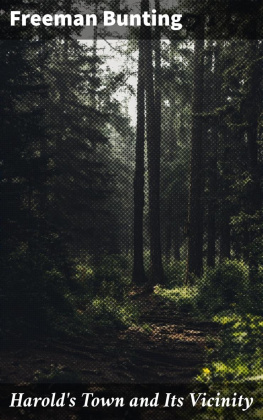


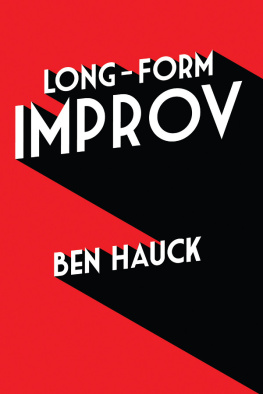

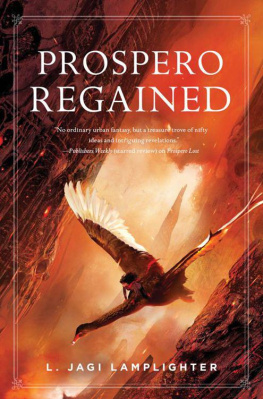
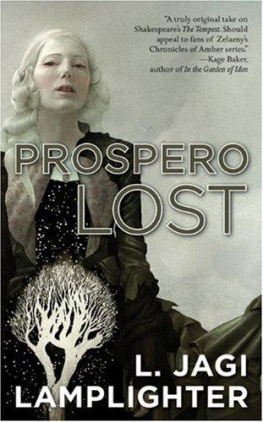

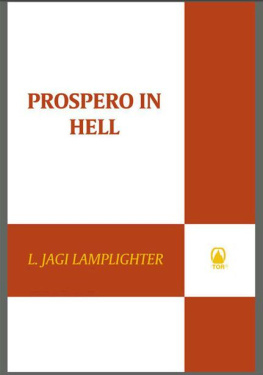
 New York
New York